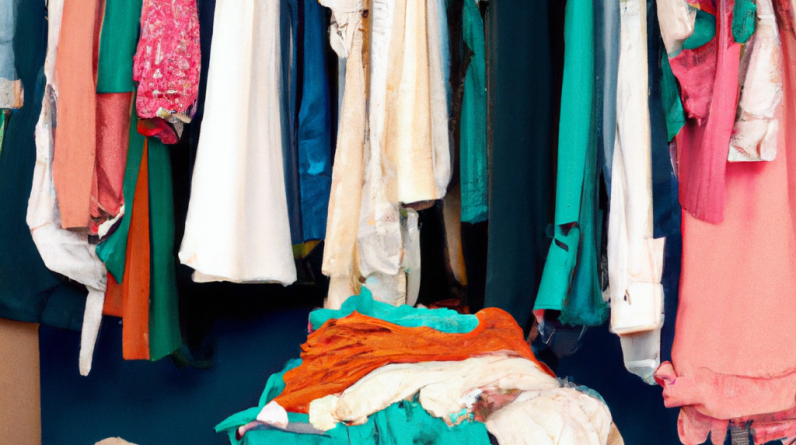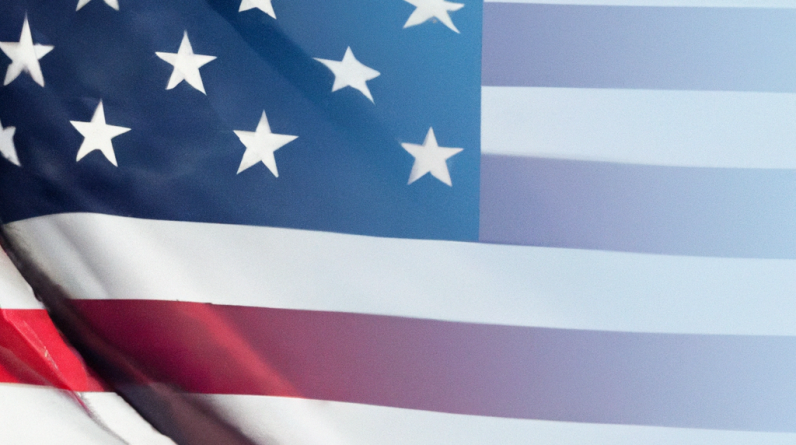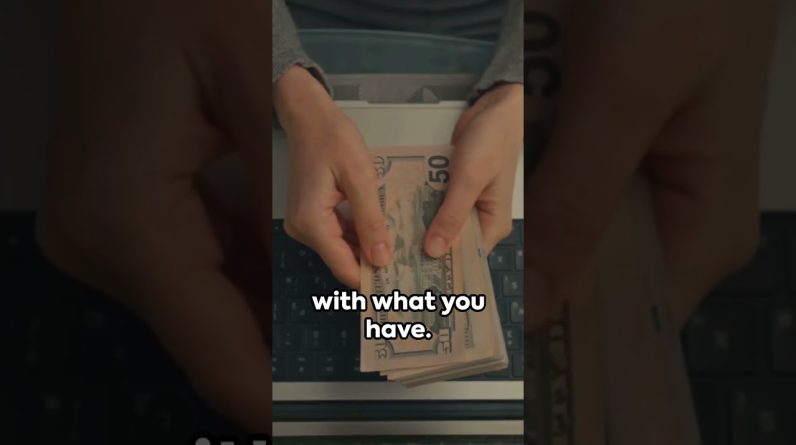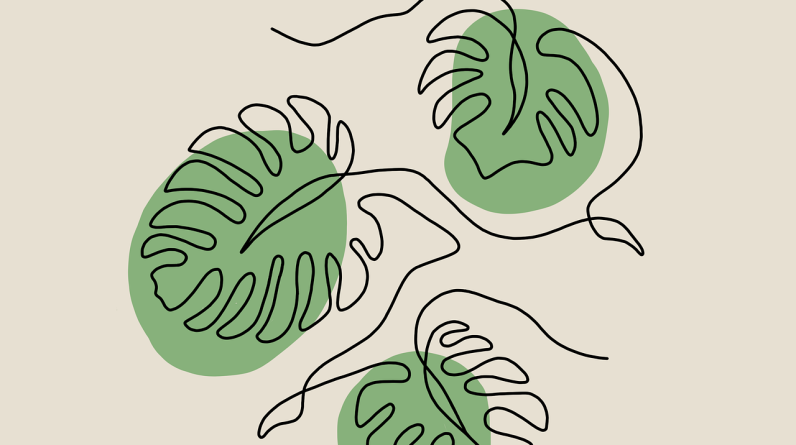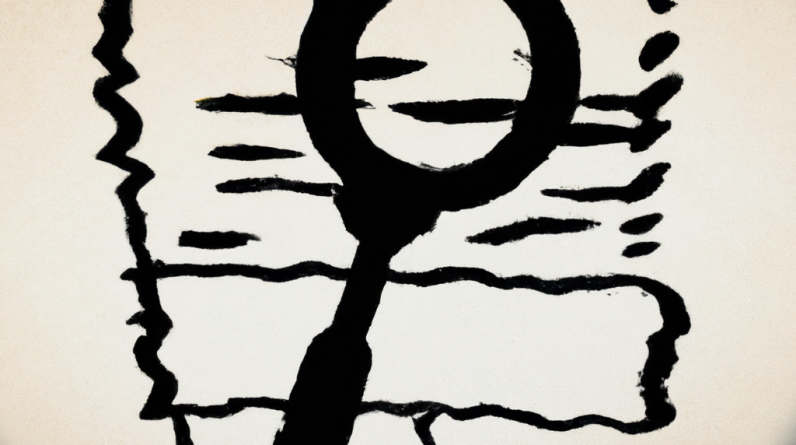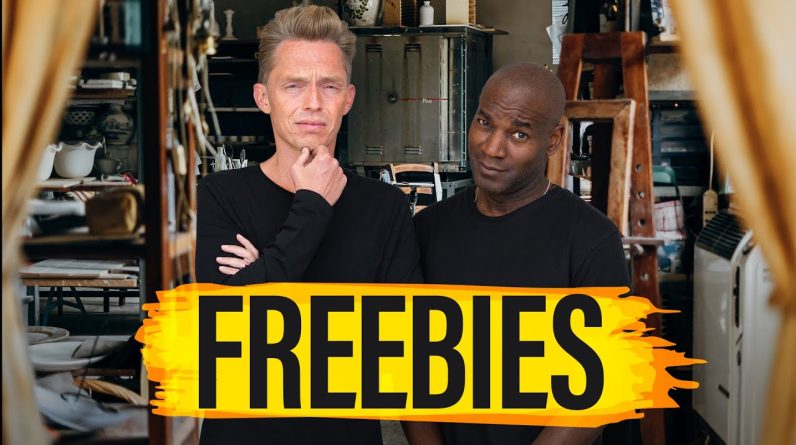
In the episode titled “Freebies Are Never Free: The True Cost Of Free Stuff Is Clutter,” The Minimalists discuss the concept of saying no to free stuff. They delve into various topics such as strategies for avoiding the “stuff rat race,” overcoming an all-or-nothing mentality, and letting go of items kept for “just-in-case” situations. Additionally, they mention the Spontaneous Combustion Rule, which asks the question of whether you would feel relief or be able to replace an item if it were to spontaneously combust in your home. Throughout the episode, The Minimalists emphasize finding a balance between decluttering and holding onto items for potential future use. They also provide tips for aspiring bloggers and mention their decision to simplify their online presence by combining their YouTube channels.
In the three-hour long video episode, The Minimalists explore the true cost of free stuff and offer insights on how to say no to freebies, both in personal and professional settings. They share their experiences and explain the long-term effects of accepting free items, highlighting the clutter and mental burden that accumulates over time. By addressing the challenges of letting go and discussing the importance of finding fulfillment without excess possessions, The Minimalists encourage viewers to question the value and cost of holding onto things “just in case.” They also emphasize the benefits of decluttering and share strategies for avoiding the constant pursuit of material possessions.
Table of Contents
Freebies and Clutter
Introduction to the concept of freebies
We all love getting something for free, don’t we? Whether it’s a promotional item from a company or a gift from a friend, the allure of free stuff is hard to resist. But have you ever stopped to consider the true cost of these freebies? The Minimalists, in their thought-provoking video episode titled “Freebies Are Never Free: The True Cost Of Free Stuff Is Clutter,” delve into the hidden consequences of accepting free items and how they can contribute to the clutter in our lives.
The true cost of free stuff
The Minimalists argue that freebies may seem enticing on the surface, but they come with their own set of costs. While you may not be paying for the physical item itself, you are paying for it in other ways – with your energy, your time, your attention, and the space it occupies. Freebies have a way of accumulating in our homes and minds, taking up valuable resources that could be used for more meaningful things. The true cost of free stuff is the clutter it creates, both physically and mentally.
How freebies contribute to clutter
Freebies have a sneaky way of finding a permanent place in our lives. They often end up in storage, forgotten and unused, collecting dust and taking up valuable space. From t-shirts and pens to beach towels and mugs, these supposedly “free” items can quickly accumulate and become a burden. The Minimalists stress that clutter is more than just physical stuff – it can also clutter our minds, causing stress and distraction. By accepting every freebie that comes our way, we unknowingly contribute to the clutter that surrounds us.
Saying No to Freebies
Strategies for saying no to freebies from employers
One common source of freebies comes from our employers, who often give away promotional items or company merchandise. But what do you do when you want to say no to these freebies without causing any tension or resentment? The Minimalists offer some strategies to navigate this situation. They suggest being upfront about your minimalist lifestyle and explaining why you choose not to accept free items. By being honest and transparent, you can set boundaries and ensure that your decision is respected.
Overcoming the all-or-nothing mentality
In the world of minimalism, it’s easy to fall into the all-or-nothing mentality – either you accept every freebie that comes your way, or you reject them all without exception. The Minimalists emphasize the importance of finding a balance that works for you. It’s okay to say no to some freebies while still accepting others that align with your values and needs. Overcoming the all-or-nothing mentality allows you to make intentional choices about the things you bring into your life while reducing the clutter.

This image is property of i.ytimg.com.
Avoiding the Stuff Rat Race
Understanding the concept of the ‘stuff rat race’
The ‘stuff rat race’ refers to the never-ending pursuit of material possessions, often driven by societal expectations and the pressure to keep up with others. The Minimalists shed light on this phenomenon, explaining how it can lead to a constant accumulation of unnecessary items. By understanding the underlying motivations behind the stuff rat race, you can begin to break free from its grip and live a more intentional and clutter-free life.
Strategies for avoiding the accumulation of unnecessary items
To avoid falling into the stuff rat race and accumulating unnecessary items, the Minimalists offer some practical strategies. They suggest practicing mindful purchasing, focusing on the quality and necessity of an item rather than succumbing to impulse buying. They also encourage decluttering regularly, letting go of things that no longer serve a purpose or bring you joy. By being intentional about the items you bring into your life, you can create a space that is free from unnecessary clutter.
Letting Go of the ‘Just-in-Case’ Mentality
Examining the mindset behind keeping items for ‘just-in-case’ situations
Many of us hold onto items because we believe we might need them someday in the future. This ‘just-in-case’ mentality can contribute to clutter and prevent us from living a more minimalist lifestyle. The Minimalists delve into the psychology behind this mindset, exploring the fear of scarcity and our attachment to material possessions. By questioning the validity of these ‘just-in-case’ scenarios, we can begin to let go of the items that no longer serve us.
Letting go of the fear of needing something in the future
One of the key challenges in adopting a minimalist mindset is overcoming the fear of needing something in the future. The Minimalists advocate for embracing a mindset of abundance, acknowledging that our needs will be met even if we don’t hold onto every item that comes into our lives. They suggest practicing gratitude for what we currently have and reframing our perspective on material possessions. By letting go of the fear of scarcity, we can begin to declutter our physical and mental spaces.

The Spontaneous Combustion Rule
Understanding the concept of the Spontaneous Combustion Rule
The Spontaneous Combustion Rule, coined by the Minimalists, encourages us to examine the value and necessity of the items in our homes. Imagine holding up an object and asking yourself, “If this spontaneously combusted right now, would I feel relief or be able to replace it?” This thought exercise helps us evaluate the true importance of the things we own and guides us in making intentional decisions about what to keep and what to let go.
Considering the value and necessity of items in your home
The Minimalists emphasize the importance of regularly assessing the value and necessity of the items in our homes. They suggest creating a space that is filled with objects that truly bring us joy and serve a purpose. By adopting the Spontaneous Combustion Rule as a guiding principle, we can ensure that our living spaces are free from unnecessary clutter and filled only with the things that truly matter to us.
Challenges of Saying No to Free Stuff
Discussing the difficulties in refusing freebies
Saying no to freebies can be challenging, especially when societal pressure and expectations come into play. The Minimalists acknowledge the difficulties of resisting the temptation to accept every free item that comes our way. They highlight the importance of staying true to your values and being confident in your decision to live a minimalist lifestyle. It may not always be easy, but the benefits of saying no to free stuff far outweigh the temporary discomfort or judgment from others.
Overcoming societal pressure and expectations
Living a minimalist lifestyle often goes against the grain of societal norms and expectations. The Minimalists encourage listeners to embrace their individuality and prioritize their own happiness and fulfillment over societal pressure. They suggest finding like-minded communities and support systems, whether online or offline, to share experiences and find inspiration. By surrounding yourself with people who understand and support your choices, it becomes easier to overcome societal pressure and stay true to your minimalist values.
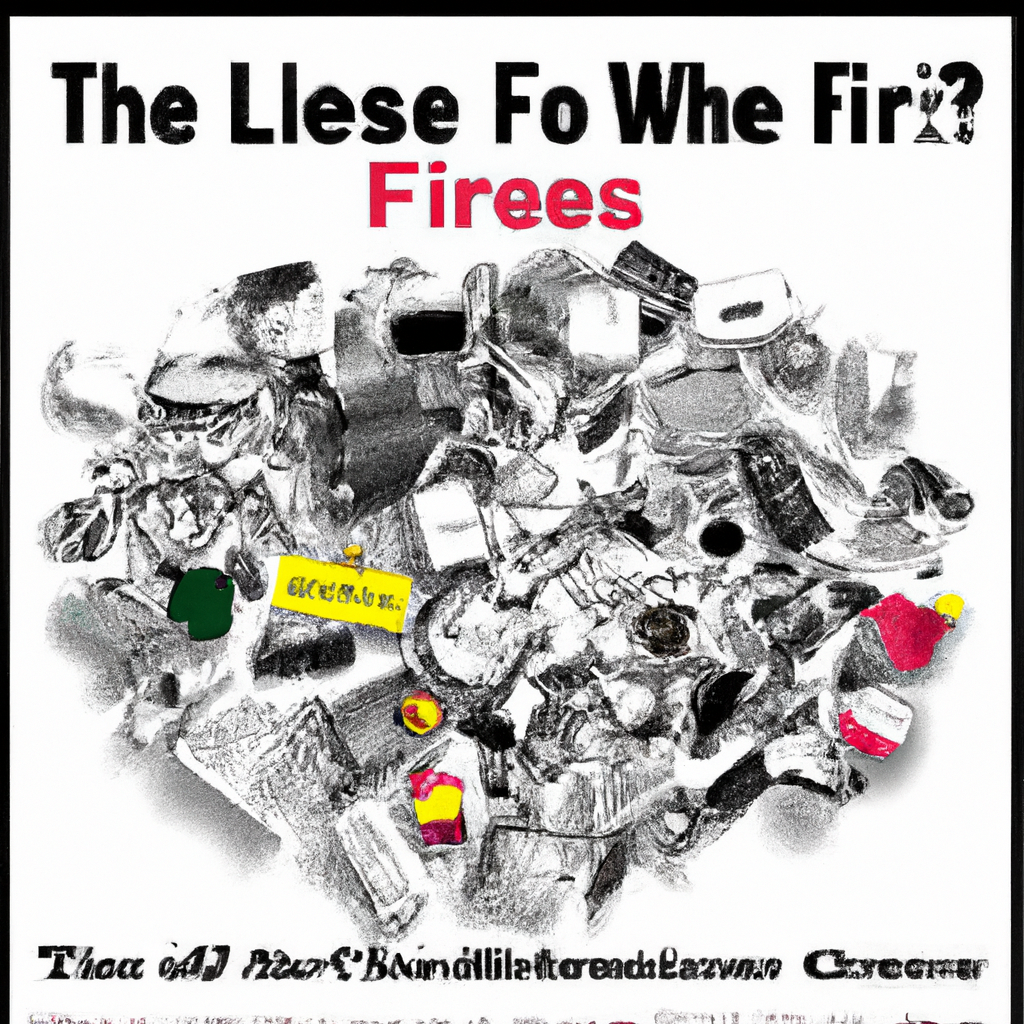
Balancing Decluttering and Potential Use
Finding a balance between decluttering and holding onto things for potential use
Decluttering is an essential part of maintaining a minimalist lifestyle, but it can be challenging to strike a balance between letting go of unnecessary items and holding onto things that might serve a future purpose. The Minimalists offer guidance on finding this balance. They suggest evaluating the potential usefulness of an item based on your current needs and priorities. If an item no longer aligns with your values or brings you joy, it may be time to let go, even if it could be useful in the future.
Evaluating the true cost of keeping unnecessary items
The true cost of keeping unnecessary items lies not just in the physical space they occupy but also in the mental and emotional burden they create. The Minimalists encourage listeners to assess the hidden costs and consequences of holding onto items that no longer serve a purpose in their lives. They emphasize the liberation that comes with letting go of unnecessary clutter and the freedom to create a living environment that truly reflects your values and priorities.
Questioning the Cost of Holding On
Examining the hidden costs of holding onto items
Holding onto items comes with its own set of costs, both tangible and intangible. The Minimalists prompt listeners to question the hidden costs of holding onto things. They suggest considering the time and energy spent managing and maintaining these items, as well as the emotional weight they carry. By critically examining the true cost of holding on, we can make more intentional choices about what we allow into our lives and create space for more meaningful experiences.
Evaluating the ‘just-in-case’ bet made by keeping things
Every item we hold onto is a bet we make on the possibility of needing it in the future. The Minimalists urge listeners to question the validity of these ‘just-in-case’ scenarios and the value we attach to the things we keep. They emphasize the importance of betting on ourselves and our ability to adapt and find solutions when needed, rather than relying on material possessions. By evaluating the ‘just-in-case’ bet, we can let go of unnecessary items and embrace a more minimalist mindset.
Benefits of Starting a Blog
Discussing the advantages of starting a blog
In addition to exploring the concept of minimalism, the Minimalists also touch upon the benefits of starting a blog. They highlight the potential for creative expression, the opportunity to connect with like-minded individuals, and the chance to share knowledge and stories. Starting a blog can be a fulfilling endeavor that allows you to create meaningful content, inspire others, and document your own minimalist journey.
Sharing tips for aspiring bloggers
For those interested in starting a blog, the Minimalists provide helpful tips to get started. They suggest identifying your passions and areas of expertise, as well as clarifying the purpose and audience of your blog. They emphasize the importance of authenticity and staying true to yourself while creating content that resonates with your readers. Additionally, they encourage aspiring bloggers to be consistent in their posting schedule and to engage with their audience through comments and social media platforms.
Conclusion
Recap of the true cost of free stuff and clutter
In this comprehensive video episode, the Minimalists delve into the concept of freebies and the hidden costs they entail. They highlight the clutter that freebies contribute to and how saying no to these items can lead to a more intentional and minimalist lifestyle. By questioning the true value of the things we own, managing societal expectations, and finding a balance between decluttering and potential use, we can create a living environment that truly reflects our values and priorities.
Final thoughts on maintaining a minimalist lifestyle
The Minimalists conclude their video episode by emphasizing the benefits of minimalism and the importance of continually evaluating the items in our lives. They advocate for letting go of unnecessary clutter, resisting the allure of freebies, and embracing a mindset of abundance. By living with intention and purpose, we can create a life that is free from the burden of material possessions and filled with the things that truly bring us joy and fulfillment.


